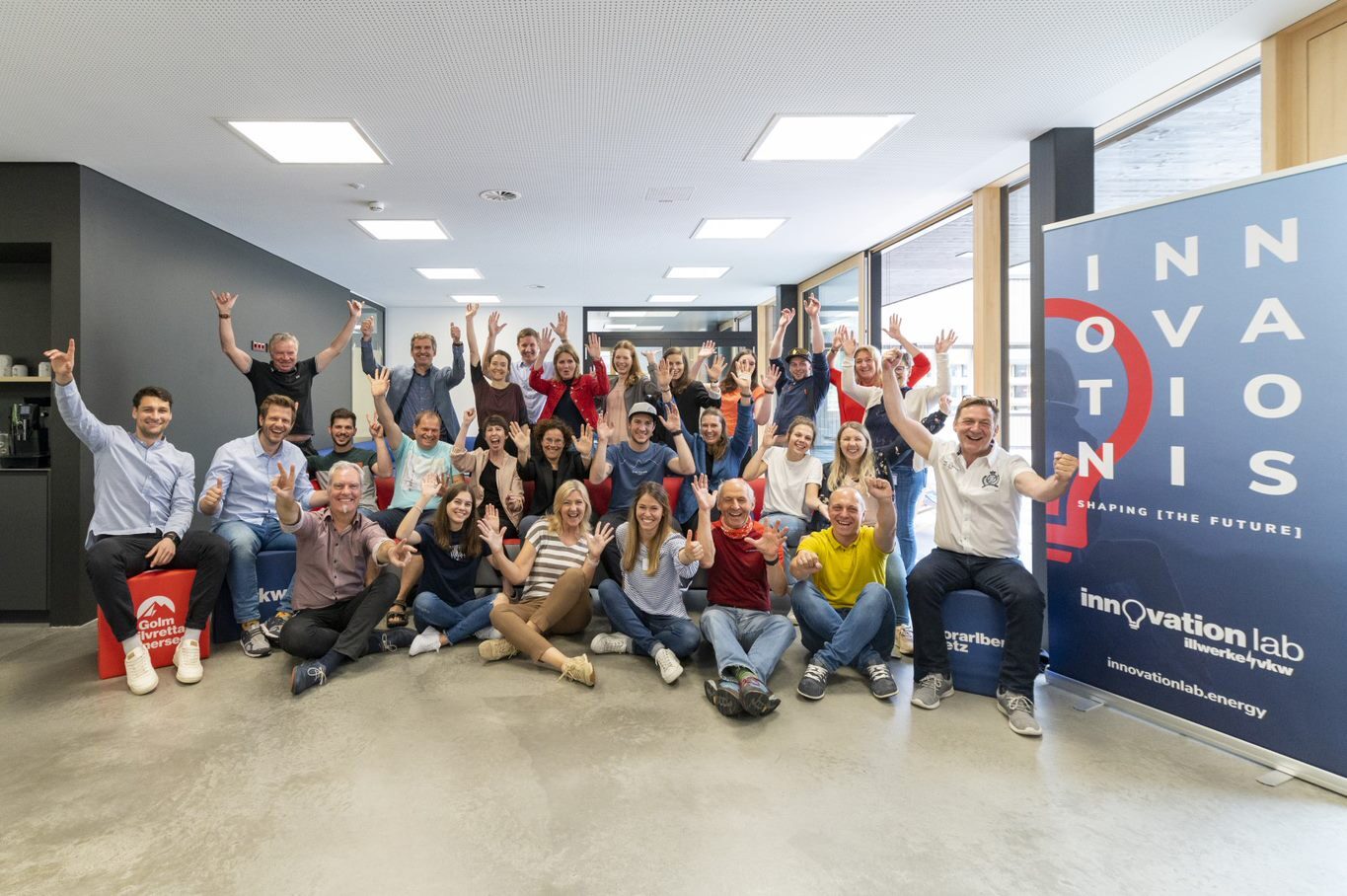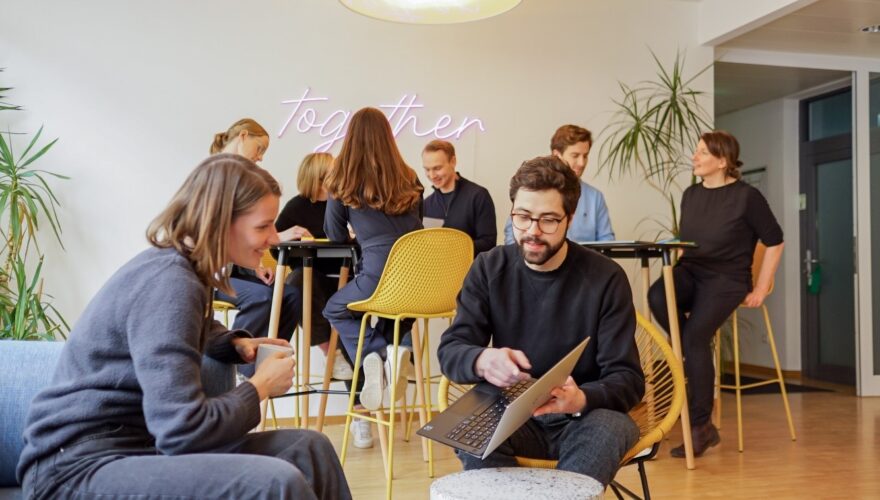Full of energy – illwerke vkw
As a reliable, regional energy supplier, illwerke vkw secures and shapes the future for generations with innovative and sustainable solutions and actively contributes to energy autonomy 2050. For people and for the region.
Think Tank, Incubator, Innovation-Hub
innovation lab is the Group’s think tank, incubator, an innovation hub, bringing new ideas about energy and its consumption to the table. With over 100 years of illwerke vkw’s innovation history at its back, the innovation lab has a strong foundation to be a reliable trailblazer in the future of energy. illwerke vkw’s innovation lab works on the pulse of time, recognizing new and value-creating ideas at an early stage, testing their market opportunities, and developing them further.
Internal ideation with blueprint potential
Identifying internal challenges and working together on a solution. Internal ideation was the objective of the workshop that we were privileged to design together with innovation lab at illwerke vkw. A creative workshop for the collaborative development of ideas like any other? Not at all. The setup was quite special: the joint design of the workshop. HYVE’s innovation experts Florian Then and Christoph Janach worked closely with the organizers of the Maker Days Verena Lung-Schmid and Valerie Bernard in the preparation and moderation.
This close collaboration and openness towards each other was very beneficial for the conception and realization of the workshop; in partnership, not only a classic Design Thinking workshop was created, but also a real blueprint for future events.
Florian Then, Innovation expert at HYVE
The workshop also marked the inauguration of the Maker Space at illwerke vkw’s newly opened apprentice campus, energie campus montafon, and the launch of the Maker Days, a new format for working on new concepts.
23 employees – 4 topics – 1.5 days
For 1.5 days, the 23 participants of the Maker Days addressed the following questions:
- How can we make electromobility more attractive to our employees and get them excited about it?
- What helps me to grow into and do justice to the role of “leader”?
- How can we make the arrival and departure of our guests as sustainable as possible?
- How do we manage to be the most attractive employer in the tourism industry and stand out from the competition?
But before the theme work came HYVE’s Maker Check. Want to find out if you too have what it takes to be a Maker?
Download HYVE’s Maker Check at the end of this post.
The outcome
With the Maker Days, a new format was created to work internally on ideas and concepts. This internal creative session will be maintained as a standard format. The results of the workshop will be further processed and implemented internally.
In a cooperative, fast and efficient way, we planned and implemented our Maker Days together with HYVE – and with the highest quality. Our participants were able to leave the workshop with clear results that will subsequently be further processed and implemented.
Valerie Bernard, Organizer innovation lab der illwerke vkw
In 5 steps from the idea to the implementable concept
With the Maker Days, we have designed an event that uses design thinking methods and HYVE’s Double Diamond method to turn initial ideas into finished concepts within two days.
We based our methodology in the workshop on five pillars:
1. Develop an understanding of the problem
In order to find out what challenges exist internally, people who face them must be involved. This can be done by using surveys, personal interviews, mood assessments, ….
2. Generate ideas
It is essential to define the ideas precisely and comprehensibly, to avoid redundancies, and to give the highest priority to the novelty or further development of the idea. The ideas are then presented and clustered.
3. Select and evaluate ideas
Prioritizing, recognizing, and evaluating potential is the third step. The ideas generated in the second phase are reflected upon and open questions/ambiguities are clarified. The ideas are clustered along the HOW, NOW, WOW matrix, and the idea clusters are subsequently evaluated.
4. Concept development
Ideas are structured, elaborated, iteratively refined, and cast into projects. Thoughts on the name, the challenges and pain points, the sketch, and the target group play a decisive role.
5. Pitch perfect
A pitch template can help with the creative pitch. Pitch Professor Daniel Cronin tells us what a perfect pitch can look like in our podcast Tell me a story, Pitch Professor. Be sure to listen to it!
Contact us if we can plan your next workshop together.


